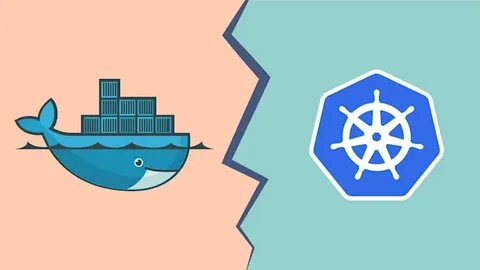Introduction
Data science projects often require complex environments with multiple dependencies, making it challenging to ensure consistency across different stages of development. Docker and Kubernetes have emerged as essential tools to streamline the deployment and scalability of data science projects. Data scientists can create reproducible, scalable, and efficient workflows using containerisation and orchestration. Enrolling in a Data Science Course can help professionals understand how these technologies enhance data science operations.
Understanding Docker for Data Science
Docker is a containerisation platform that allows data scientists to package applications with all dependencies into a standardised container unit. This ensures that the application runs consistently across different environments. A crucial advantage of Docker is that it eliminates the “works on my machine” problem by providing an isolated environment for every project. Integrating Docker into workflows is a key component of a Data Science Course.
Benefits of Using Docker in Data Science
1. Reproducibility
Docker allows data scientists to create an image that captures the entire computational environment, including libraries, datasets, and dependencies. This ensures that experiments can be easily reproduced, a fundamental requirement in data science research. Understanding the significance of reproducibility is a core topic covered in a data scientist course in Hyderabad.
2. Simplified Collaboration
With Docker, teams can share pre-built images, ensuring every team member works in an identical environment. This enhances collaboration and minimises compatibility issues when working on shared projects. Professionals taking a course learn how Docker streamlines teamwork in data-driven projects.
3. Efficient Resource Utilisation
Containers consume fewer resources than virtual machines, making Docker an efficient choice for running machine learning models. By using lightweight containers, data scientists can maximise computational efficiency. A data scientist course in Hyderabad thoroughly discusses the best practices for resource optimisation.
Introduction to Kubernetes for Data Science
Kubernetes is an open-source platform that automates containerized applications’ deployment, scaling, and management. It provides robust orchestration capabilities that make managing complex data science workflows easier. Enrolling in a data science course ensures that professionals gain hands-on experience in leveraging Kubernetes for scalable data science projects.
How Kubernetes Enhances Data Science Projects?
1. Automated Scaling
Kubernetes allows for the automatic scaling of machine learning models based on demand. This is particularly useful for handling real-time predictions and large-scale data processing. Learning Kubernetes ensures that data scientists can build resilient systems, a skill emphasised in a course.
2. Load Balancing and Fault Tolerance
By distributing workloads efficiently across multiple nodes, Kubernetes ensures that data science applications remain highly available and responsive. The concepts of load balancing and fault tolerance are critical for professionals pursuing a course.
3. Resource Allocation and Optimisation
Kubernetes enables data scientists to allocate resources dynamically, preventing underutilisation or overuse of computing power. This helps run large-scale AI models without unnecessary costs. Learning these techniques is crucial to a course.
Integrating Docker and Kubernetes in Data Science Workflows
1. Containerizing Data Science Pipelines
Using Docker to containerise different stages of the data science pipeline—data preprocessing, model training, and deployment—data scientists can ensure the entire workflow is reproducible. Students in a course learn the best practices for setting up containerised workflows.
2. Deploying ML Models with Kubernetes
Kubernetes makes deploying machine learning models as microservices easy, allowing seamless integration with web applications and APIs. This ensures scalability and high availability, which are essential aspects covered in a course.
3. Using Kubernetes for Continuous Integration and Deployment (CI/CD)
Kubernetes enables the automation of CI/CD pipelines for machine learning models, ensuring faster iterations and updates. Understanding CI/CD processes with Kubernetes is a valuable skill for anyone taking a course.
Challenges and Solutions in Using Docker and Kubernetes
1. Managing Dependencies
While Docker helps with dependency management, ensuring compatibility across different libraries and frameworks can still be challenging. A course explores advanced techniques for dependency management.
2. Security Concerns
Security is a major consideration when deploying data science models. Kubernetes provides security features like role-based access control (RBAC) and network policies to safeguard models and data. Learning Kubernetes security best practices is essential to a course.
3. Complexity of Kubernetes Management
Kubernetes can be challenging to set up and manage, especially for beginners. However, managed Kubernetes services such as Google Kubernetes Engine (GKE), Amazon Elastic Kubernetes Service (EKS), and Azure Kubernetes Service (AKS) simplify deployment. A data science course teaches the practical implementation of managed services.
Future Trends: Kubernetes and MLOps
With the growing adoption of MLOps (Machine Learning Operations), Kubernetes is becoming the de facto standard for deploying and managing machine learning models at scale. MLOps focuses on automating the ML lifecycle, ensuring that models are continuously monitored, retrained, and updated. Professionals looking to stay ahead in data science should consider enrolling in a to master Kubernetes-driven MLOps workflows.
Conclusion
Docker and Kubernetes are revolutionising how data science projects are developed, deployed, and scaled. Data scientists can build efficient, scalable, and reproducible workflows by integrating these technologies. To gain expertise in leveraging these tools, enrolling in a data scientist course in Hyderabad is a smart choice. With hands-on training and real-world applications, professionals can effectively enhance their skills and streamline their data science projects.
ExcelR – Data Science, Data Analytics and Business Analyst Course Training in Hyderabad
Address: Cyber Towers, PHASE-2, 5th Floor, Quadrant-2, HITEC City, Hyderabad, Telangana 500081
Phone: 096321 56744

